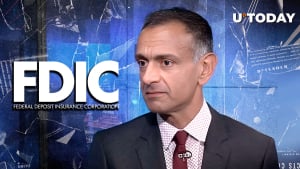ARTICLE AD BOX
A hot new debate has emerged in the crypto community regarding alleged listing fees on centralized exchanges - specifically Binance and Coinbase. It all began with one of the venture capitalists sharing the details of a conversation with a high-end project that reportedly received a listing offer requesting 15% of the project’s total token supply, an amount potentially worth up to $100 million. The venture capitalist claimed that such demands are unaffordable for most projects and are the main reason why prices go down after listings.
Coinbase CEO Brian Armstrong responded, highlighting that Coinbase listings are free, inviting projects to apply through the exchange. However, this statement faced pushback from Andre Cronje, founder of Fantom, who disputed the claim, revealing Coinbase had asked Fantom for payments ranging from $30 million to $300 million over the years.
Binance, on the other hand, according to Cronje, had never charged Fantom for a listing, contrasting his experience with the exchange with Armstrong’s position.
Exactly the same situation with us.
Binance charged us $0.
Coinbase required us to pay 500 million TRX (worth $80 million) and demanded a $250 million BTC deposit in Coinbase Custody to boost their performance.
Lots of respect. But this is simply not true.
Cronje’s stance gained backing from TRON founder Justin Sun, who reported similar issues with Coinbase, alleging that they required a substantial amount of TRX tokens and a $250 million BTC deposit in Coinbase Custody for performance purposes. Sun emphasized that Binance had never imposed such fees on TRON, contrasting Coinbase's approach.
Binance speaks
Finally, following these revelations, Binance's He Yi, cofounder and chief customer service officer, provided clarification on the exchange's listing process. According to Yi, Binance's listing criteria are strictly enforced, with no amount of money or tokens able to override their screening requirements.
She suggested that speculation and rumors about Binance's listing fees are unfounded and that business competition can often give rise to misunderstandings.
 (1).png) 3 weeks ago
27651
3 weeks ago
27651











 English (US) ·
English (US) ·